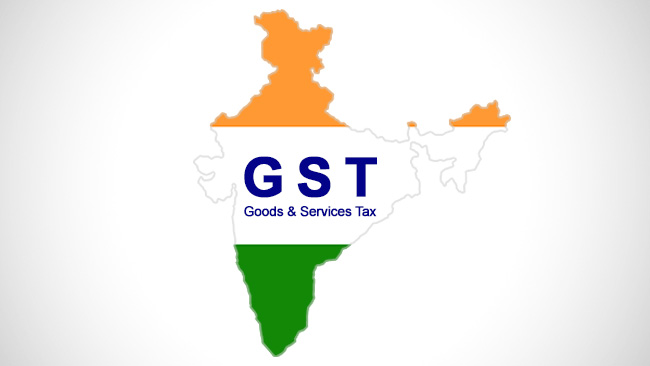Pending state ratification, the India Goods and Services Tax (India GST) will come into effect on April 1, 2017. What does that mean for businesses? Let’s look at some frequently asked questions.
What is GST?
GST stands for Goods and Services Tax. GST will be a single, destination-based, consumption tax that will replace existing taxes, including CENVAT, Octroi, Sales Tax, and Excise Duty, etc. Unlike the old tax structure, where the state of origin received tax revenue, in the new GST model the state in which goods and services are consumed is the state that will receive the revenue.
What will trigger GST?
The ‘supply’ of goods and/or services to any person or entity in India.
What does ‘supply’ mean?
The sale, transfer, barter, exchange, license, rental, lease or disposal of goods and services.
Why is GST being introduced?
Standardization of the tax structure across the country rather than individual tax rates by state, and to provide businesses the ability to offset taxes so that double taxation is avoided.
What are the types of GST?
CGST: Central Goods and Services Tax, paid on all transactions, collected by the Center.
SGST: State Goods and Services Tax, paid on all transactions within a State, collected by the States.
IGST: Integrated Goods and Services Tax, paid on all inter-state transactions, or import of goods into India, collected by the Center.
Do I charge GST on exported goods and services?
No, GST is a consumption-based tax. Because the place of consumption is outside India there is no GST on exported goods and services.
Will there be a Central and State GST levied on all transactions in India?
Yes, every transaction of supply in India will either be subject to:
CGST and SGST
OR
CGST and IGST
unless the good or service is exempt.
What goods and services are exempt?
The list of exempt goods and services includes (but is not limited to) petroleum products, entertainment and amusement, alcohol/liquor for human consumption, stamp duty, customs duty, and electricity.
When does ‘supply’ occur?
For goods it’s the earliest of the following:
- Date of removal of goods
- Date goods are made available to the recipient
- Date the invoice is issued
- Date payment is received
- Date recipient reflects the goods on his/her books of accounts
For services it’s the earliest of the following:
- Date the invoice is issued
- Date payment is received
- Date services are completed (where invoice is not issued within a prescribed time)
- Date recipient reflects the goods on his/her books of accounts
Will B2B transactions be subject to GST?
Yes, all procurement will be subject to GST but businesses will get a credit for B2B transactions. The challenge will be that GST will have to be paid before a credit is received. This will impact business cash flow. The goal of all businesses will be to figure out how to minimize the cash flow impact and maximize the credits.
What is an Input Tax Credit?
The taxes you pay on input goods/services can be used as an Input Tax Credit (ITC) against output tax liabilities.
How can Input Tax Credits be applied?
Input tax credits can be used as follows:
- CGST input tax credits can only be used to pay CGST and IGST
- SGST input tax credits can only be used to pay SGST and IGST
- IGST input tax credits can be used to pay CGST, SGST, and IGST
This means you will need to maintain separate records of ITC utilization or refund of credit for State and Center taxes.
My manufacturing facility currently receives a state tax exemption. Will I still receive this exemption?
It depends. Firstly, even if you do, it will now be as a credit. So you will have to pay GST, then get a credit from the state. This will impact your cash flow. Secondly, the state’s ability to continue offering exemptions will depend on how much revenue they are generating from your industry. GST is a consumption tax based on where goods are supplied to customers, not where they originate. So if most of your customers are located in other states, the state where your facility is located may not generate enough revenue to continue offering you an exemption.
Will stock transfers subject to GST?
Yes, stock transfers between two states within the same organization will trigger GST.
How will returns and replacement products be handled?
Returns will trigger a tax credit, however, replacement products will be subject to GST, so cash flow may be impacted by returns.
Are promotional items and/or free samples subject to GST?
Yes, the stock transfer of promotion materials and/or free samples will be subject to GST, and supply of those promotion materials/free samples to the retailers who stock your product, or end customers, will also be subject to GST.
When will GST come into effect?
The expected GST introduction date is April 1, 2017, but first the GST Law needs to be ratified by the states. This is expected to be completed in December 2016.
How will I pay GST?
GST will be managed through the GST Network, GSTN – http://gstn.org/. All taxes will be paid online and there will be no manual filing of returns.
Do all business have to file a GST return?
No, there will be an annual sales threshold below which your business will not have to file a GST Return. The exact amount is being debated by the states, with current ranges being Rs. 10 lakh to 25 lakh, or roughly $15,000 USD to $37,000 USD.
How will GST affect the cost of software and IT services?
GST tax rates will not be finalized until January 2017, however, based on current information, software purchases will be cheaper down to 18% from 20.5%, whereas IT services may rise slightly from 15% to 18%.
Need help preparing your distribution network for GST? Please contact us.
Disclaimer: Please note, this information does not constitute tax or legal advice. Also, this commentary was based on facts available as at August 25, 2016, and may change.

